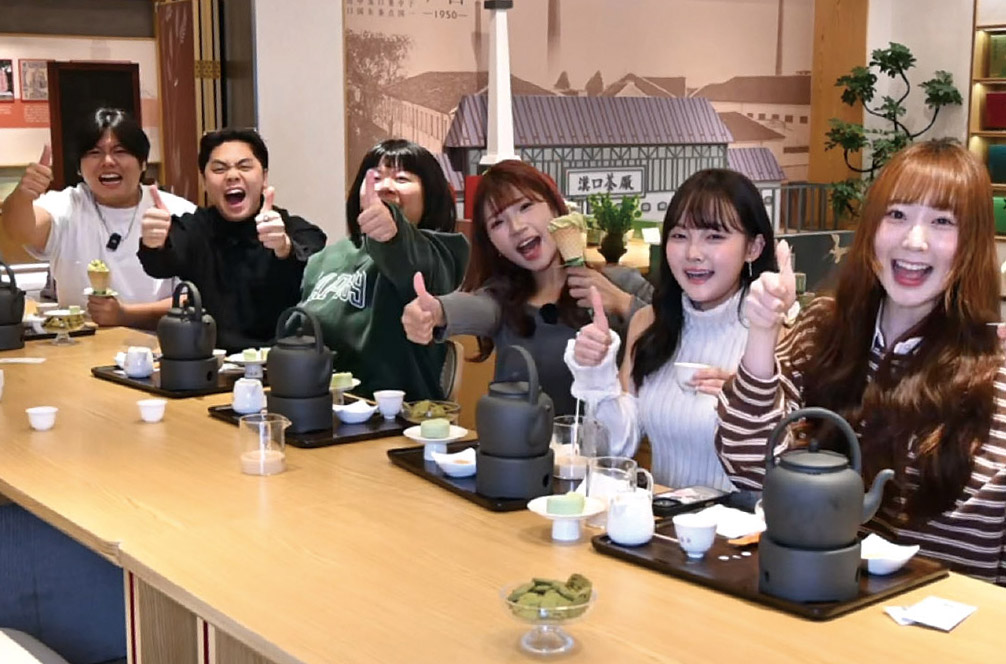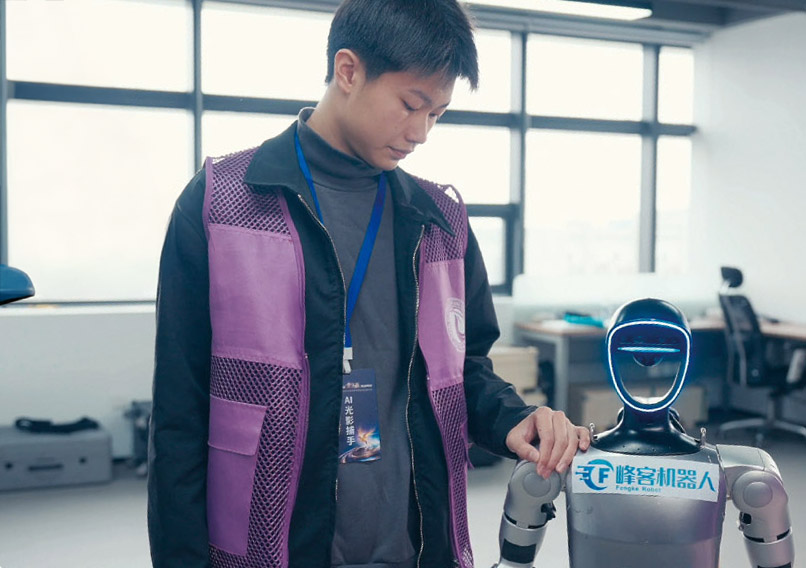From spontaneous shoots to late-night brainstorming, students from the Chinese mainland and Taiwan forge bonds while pushing microfilm storytelling boundaries.

When Zhang Jing, 26, lifted the "golden swallow" trophy — the top award of the 11th "Golden Swallow "Cross-Strait Micro Film and Micro Video Competition — her mind drifted back six years. She was a newcomer with no formal training, yet she had stepped onto the same stage to win both a "silver swallow" and the award for best leading actress.
Now, with eight years of short-film experience behind her, the award felt less like a finale and more like a reminder of how her journey had begun.
Held from Nov 6 to 10 at Hubei University of Economics (HBUE) in Wuhan, capital of Hubei province, this year's competition received more than 600 submissions from over 40 universities across both the Chinese mainland and Taiwan, under the theme "I.Vision".
Centered on intelligence and innovation, the event encouraged participants to experiment with tech-driven storytelling and build deeper connections across the Taiwan Strait through film.
READ MORE: Youth across the Strait keep history alive
For Zhang, now a participant from the Beijing Film Academy, the competition holds a special place in her life. Back in 2019, her early work caught the attention of veteran filmmakers and university professors from Taiwan. They have kept in touch ever since, sharing microfilms and creative ideas — a mentorship that has become a vital bridge in her filmmaking journey.
"When I applied for my master's program in directing as a cross-disciplinary student, two of the four recommendation letters I needed came from Taiwan," she said.
Building on years of such exchanges, this year's competition went beyond traditional judging to encourage deeper peer interaction. One highlight was the inaugural "creative mystery box "segment, which randomly assigned participants to one of three themes: cultural heritage, local life, or technological innovation.
Students from the mainland and Taiwan were then placed into mixed teams, sent out to explore Wuhan, and given two days to complete a microfilm based on their theme.
Liu Yang, 22, joined a technology-themed team made up of five students from the Chinese mainland and six from Taiwan. One of their tasks was to produce a promotional video featuring autonomous driving.
After finalizing the script together, the team moved straight into production. Because they weren't allowed to scout locations in advance, they had to plan their shots on the spot. "The autonomous driving scenes were the toughest," Liu said, explaining that the team had to improvise angles and timing while contending with real traffic.
Still, despite gathering only scattered voice-overs and footage, they managed to piece everything together into a lively and coherent narrative.

Friendship in motion
For Xue Jia-yu, a 19-year-old participant from Taiwan, the experience felt much like working on a school project with classmates.
Although team members came from different sides of the Strait — and although this was Xue's first visit to the Chinese mainland — they quickly bonded and started exploring Wuhan together, guided by Liu, a Wuhan native.
One moment especially stayed with her: riding in a new-energy vehicle produced on the mainland as Liu drove the team to a hot pot restaurant. Liu switched on the seat massage, ventilation, and music, while two Taiwan teammates took turns singing joyfully into the car's microphone throughout the ride.
For Liu, the moment showed just how novel the mainland's technological innovations felt to his Taiwan peers, as well as the genuine curiosity they shared about each other's daily lives.
Beyond filming, the team also spent time together over late-night snacks and karaoke sessions, chatting about everything from cinematography to personal experiences.
Huang Tai-yu from Hsing Wu University in Taiwan said that although everyone hoped to win awards, the evenings spent discussing shots and strolling with mainland teammates meant even more to him.
Yen Ching-hung, a teacher leading the Taiwan participants, observed that the students had formed closer bonds than in previous years, a change he attributed to the new format.
"Earlier editions were usually centered on submitting entries and following a tight schedule, leaving little time for students to engage with each other," he said. "This year's collaborative segment, however, created far more direct and sustained interaction, allowing barriers to dissolve much more quickly."
During the exchanges, the young creators also discovered much to learn from one another. Huang noted that films produced on the Chinese mainland often feature richer narration and stronger storytelling, which he found refreshing.
Liu, meanwhile, drew inspiration from the emotional expressiveness of the Taiwan participants. Whether designing scenes or filming, they tended to express their feelings directly, letting joy, anger, sorrow, and happiness come through naturally on camera.
ALSO READ: Culinary bonds across the Strait
"I'm usually more reserved. But seeing their sincerity and dedication encouraged me to take a bolder, more expressive approach in my own creative work," Liu said.
Despite stylistic differences, the shared cultural roots across the Strait created a unique emotional resonance, Liu noted. "I felt an instant connection with my Taiwan teammates, as if we had met too late," he said.
Although the event lasted only a few days, these connections quickly blossomed into genuine camaraderie. The young participants even began planning for next year: to film nightscapes along the Hanjiang River, practice tai chi on Wudang Mountain, and admire cherry blossoms at East Lake.
Liu hopes that future cross-Strait co-creation projects will allow more time for collaboration, giving young creators the chance to produce more polished works and spark greater inspiration.
Contact the writers at liukun@chinadaily.com.cn


